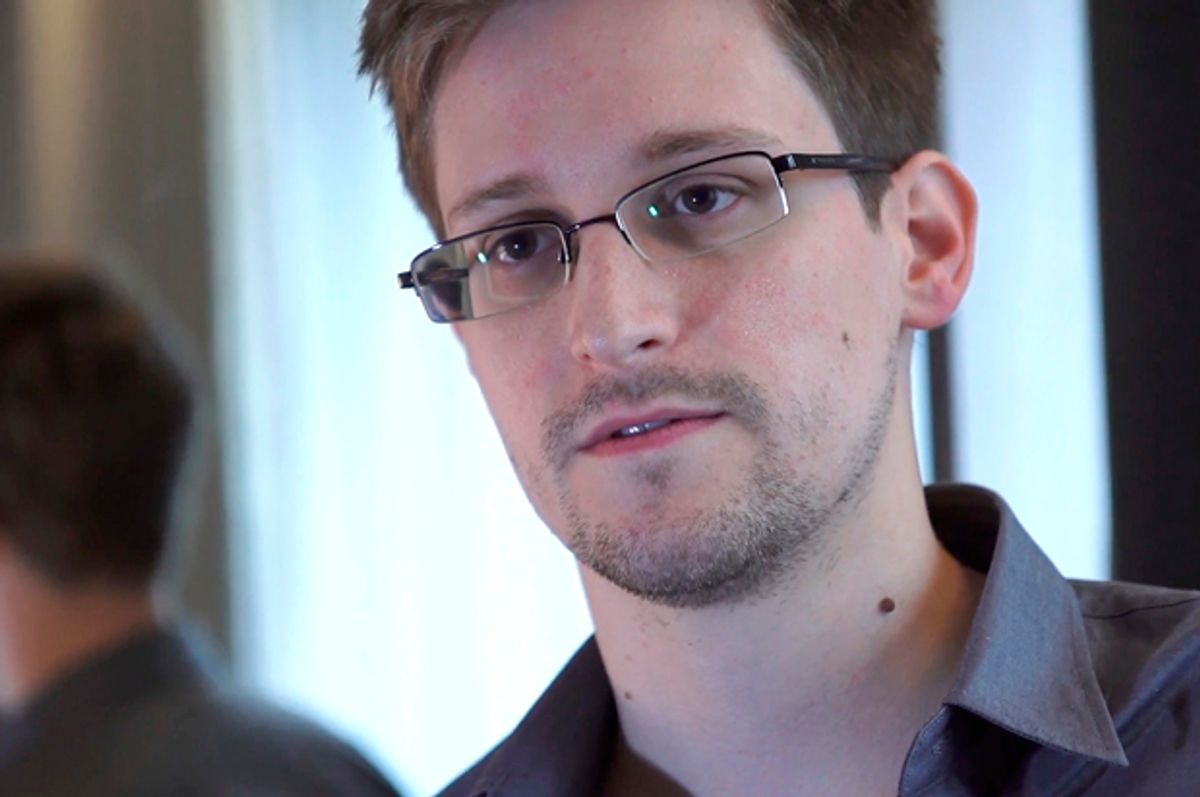“Saying you don't care about privacy because you have nothing to hide is like saying you don't care about free speech because you have nothing to say."
—Edward Snowden
Edward Snowden should know because his former job involved helping the government spy on every single one of us. Our phones and computers contain a striking amount of intimate details about us, and corporations and the government work tirelessly to obtain that information. Yet Americans often seem increasingly apathetic about maintaining their privacy. While it may seem like you have no reason to hold privacy in high regard if you're not a criminal, there are many reasons why protecting privacy is one of the most important things a person can fight for.
Journalists lose their ability to reveal the truth when the government can identify the anonymous sources they're using to investigate the government's violation of the Constitution or other laws. Activists are silenced when they fear speaking out because they're aware that they're being monitored. Lawyers cannot adequately defend a victim of government abuse when the agency they're battling can see their every communication and all their data remotely.
Even if you're not a journalist, activist or a lawyer, you may in some way rely on the actions undertaken by such professionals. Furthermore, every customer of a corporation can be manipulated when that company knows what details to use against him or her, and we're all customers to some degree.
One concerning example of a corporation trying to use someone's personal information against him or her is the case of Uber looking at how much someone will pay for a ride when their phone's battery is low. One wouldn't expect Uber to have access to that information, but that's possible when privacy is not protected. Another example would be a health care provider's charging someone more because it finds out they drink regularly.
“If people know things about you, they can take advantage of you,” Ryan Calo, an assistant professor of law and a technology expert at the University of Washington, told Salon. Corporations have “the capacity and incentive to manipulate consumers to their benefit based on what they know about them" and "the same is true of government."
Ira Rubinstein, a senior fellow at New York University's Information Law Institute, told Salon he believes many people are ignorant to the costs of surveillance or cynical thinking there's no way to avoid being spied on; so they don't try to avoid it. To me, that sounds like jumping off a cliff because there's no way to avoid death.
Calo said privacy threats will become only greater when machine learning is regularly applied to trying to understand people. That would mean artificial intelligence could use data to identify patterns and create detailed pictures of who we are.
One hope for the future would be if private companies try to help people protect their data by building protections into their products. We've seen this happen with companies like Apple putting advanced encryption into its phones. If consumers appear to value privacy, sometimes companies benefit from helping them maintain it.
The top presidential candidates have not spent much time talking about privacy, but we do know some things about how they might handle surveillance and other privacy issues. While Democratic presidential nominee Hillary Clinton supported the USA Freedom Act, which was meant to rein in the surveillance started by the Patriot Act, she had voted for the Patriot Act years earlier. To be fair, the surveillance powers have grown far beyond what one of the authors of the Patriot Act claims to have originally intended.
Republican presidential nominee Donald Trump, on the other hand, appears eager to use surveillance powers. He has proposed surveilling mosques, and he's said he supports the idea of mass domestic surveillance being done by the National Security Agency. We know he'll at least be surveilling our Twitter feeds.
“Trump has made repeated references to, if anything, vastly expanding a surveillance authority," Calo said. "Whereas, Clinton, I imagine, will be . . . a little more restrained,” he added. “On balance, Trump would be much worse for privacy than Clinton.”
For the record, the President’s Review Group on Intelligence and Communications Technologies has found mass domestic surveillance does not help fight terrorism.
Rubinstein said another concerning thing about this presidential election is how much data candidates are collecting in an attempt to find likely supporters. “If candidates routinely rely on massive surveillance of voters’ habits and preferences to attract undecided voters, raise money, and get out the vote — then what does this mean for their future views on consumer privacy?” Rubinstein said. “I worry that their own use of these methods will desensitize presidents (and their political staff) to the whole issue of consumer privacy.”
When citizens give up their power, it almost always be used against them. When the government or a private entity knows everything about you, it will use that knowledge to influence or perhaps harm you. We all have something to hide, even if it's not always obvious.



Shares